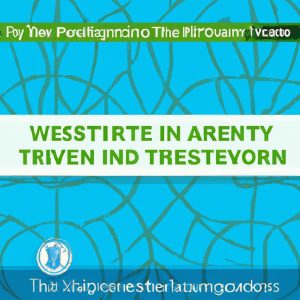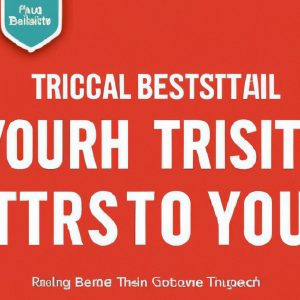The Significance of Property Ownership
Owning a home is a major achievement representing stability, security, and a place to call your own. However, navigating the world of homeownership can be daunting, especially regarding legal terms like deeds and titles. A common query that many homeowners ponder is whether having their name on the deeds means they truly own the property. Let’s explore this topic further to grasp the implications of being listed on the deeds.
Understanding Deeds
A deed is a legal document that confirms ownership of a property. It includes detailed information about the property, such as its address, legal description, and the property owners’ names. When you buy a house, a deed is utilized to transfer the property from the seller to the buyer. Various types of deeds exist, such as warranty deeds, quitclaim deeds, and grant deeds, each serving a specific purpose in real estate transactions.
Differentiating Ownership and Title
It is crucial to differentiate between ownership and title in real estate matters. Ownership pertains to having the legal right to possess, use, and dispose of a property. Conversely, title refers to the legal document that validates ownership of the property. In most cases, having your name on the deeds signifies ownership of the property, serving as evidence of your ownership rights.
Implications of Being Listed on the Deeds
Being listed on the deeds of a property typically indicates that you are a legal owner of the house. This grants you the authority to occupy, utilize, and sell the property as you deem fit. However, there are scenarios where an individual’s name may appear on the deeds without actually owning the property outright. For instance, joint owners, co-owners, or beneficiaries may have their names on the deeds, but their ownership rights may be limited based on specific legal arrangements.
Advantages of Being Listed on the Deeds
There are numerous advantages to having your name on the deeds of a property, including:
Legal Ownership: Being listed on the deeds establishes your legal ownership of the property, empowering you to make decisions regarding it.
Borrowing Power: If your name is on the deeds, you may leverage the property as collateral for loans or mortgages, providing you with access to additional funds when necessary.
Inheritance Rights: By having your name on the deeds, you can ensure that the property is passed on to your chosen beneficiaries in accordance with your wishes.
Practical Guidelines for Property Ownership
For current or prospective homeowners, here are some practical guidelines to bear in mind:
Secure Your Deeds: Safeguard your property deeds in a secure location, such as a safe deposit box or a fireproof safe, to prevent loss or damage.
Update Your Deeds: If there are any changes to your ownership status, such as marriage or divorce, ensure that your deeds are updated to reflect the new legal arrangements.
Seek Legal Counsel: If you have queries about your property deeds or ownership rights, it is advisable to seek advice from a real estate attorney for expert guidance.
In Conclusion
In conclusion, having your name on the deeds of a property typically indicates that you are a legal owner of the house, with all the rights and responsibilities that accompany homeownership. Understanding the implications of being listed on the deeds and taking the necessary precautions to safeguard your ownership rights is essential. By adhering to practical advice and consulting legal professionals when needed, you can navigate the complexities of property ownership confidently and securely.
Demystifying Property Ownership: Are You a True Homeowner If Your Name is on the Deeds
Property ownership is a significant milestone for many individuals. It provides a sense of stability, security, and pride. However, the concept of homeownership can sometimes be confusing, especially when it comes to understanding the legal aspects of owning a property. One common question that arises is whether you are a true homeowner if your name is on the deeds. Let’s delve into this topic and demystify property ownership.
Understanding Property Deeds
Property deeds are legal documents that transfer ownership of a property from one party to another. When your name is on the deeds, it means that you have legal ownership of the property. The deed contains important information such as the property description, the names of the buyers and sellers, and any encumbrances or restrictions on the property.
Are You a True Homeowner?
Having your name on the deeds is a clear indication that you are a legal owner of the property. However, being a true homeowner goes beyond just having your name on a piece of paper. True homeownership is about more than legal ownership – it is about taking responsibility for the property, maintaining it, and making it your own.
Here are some factors that determine whether you are a true homeowner:
- Responsible for upkeep and maintenance of the property
- Personalizing and making improvements to the property
- Emotional attachment to the property
Benefits of Being a True Homeowner
Being a true homeowner comes with various benefits, including:
- Greater sense of pride and accomplishment
- Freedom to make changes and improvements to the property
- Building equity and wealth through property ownership
Practical Tips for Homeowners
Here are some practical tips for homeowners to enhance their homeownership experience:
- Regularly maintain and upkeep the property
- Invest in home improvements that add value to the property
- Stay informed about property taxes and insurance
Case Studies
Let’s look at some case studies to understand the concept of true homeownership:
| Case Study | Scenario | Outcome |
|---|---|---|
| John and Sarah | John and Sarah purchased a fixer-upper property and renovated it together. | They develop a strong emotional attachment to the property and consider it their dream home. |
| Michael | Michael owns multiple investment properties but feels no emotional connection to any of them. | Despite owning the properties legally, Michael does not consider himself a true homeowner. |
Conclusion
Having your name on the deeds is a crucial step in property ownership, but being a true homeowner involves more than just legal ownership. True homeowners take pride in their property, maintain it, and consider it their own. By understanding the concept of true homeownership, you can fully appreciate the benefits and responsibilities that come with owning a property.
The post Demystifying Property Ownership: Are You a True Homeowner If Your Name is on the Deeds appeared first on lawyer.bet.




